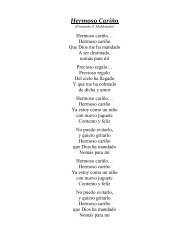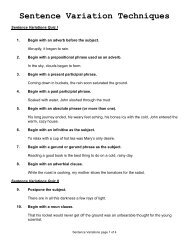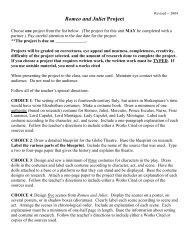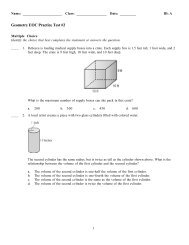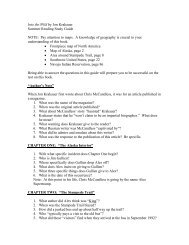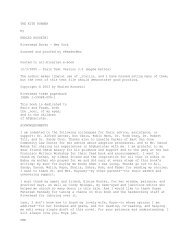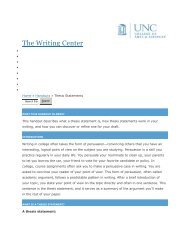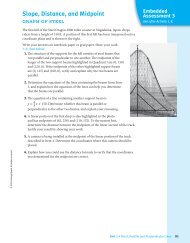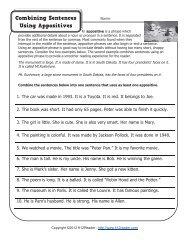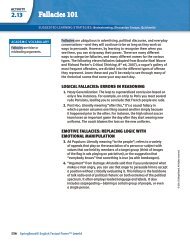Unit 1.pdf - Southwest High School
Unit 1.pdf - Southwest High School
Unit 1.pdf - Southwest High School
You also want an ePaper? Increase the reach of your titles
YUMPU automatically turns print PDFs into web optimized ePapers that Google loves.
Activity 1.20<br />
continued<br />
© 2011 College Board. All rights reserved.<br />
again, a year later, and I am here again. Everyone in the village knows<br />
my name, though they scarcely ever use it, knows that I come from<br />
America—though this, apparently, they will never really believe: black<br />
men come from Africa—and everyone knows that I am the friend of the<br />
son of a woman who was born here, and that I am staying in their chalet.<br />
But I remain as much a stranger today as I was the first day I arrived, and<br />
the children shout Neger! Neger! as I walk along the streets.<br />
4 It must be admitted that in the beginning I was far too shocked to<br />
Chunk<br />
have any real reaction. In so far as I reacted at all, I reacted by trying to<br />
3<br />
be pleasant—it being a great part of the American Negro’s education<br />
(long before he goes to school) that he must make people “like” him. This<br />
smile-and-the-world-smiles-with-you routine worked about as well in<br />
this situation as it had in the situation for which it was designed, which<br />
is to say that it did not work at all. No one, after all, can be liked whose<br />
human weight and complexity cannot be, or has not been, admitted.<br />
My smile was simply another unheard-of phenomenon which allowed<br />
them to see my teeth—they did not, really, see my smile and I began to<br />
think that, should I take to snarling, no one would notice any difference.<br />
All of the physical characteristics of the Negro which had caused me, in<br />
America, a very different and almost forgotten pain were nothing less<br />
than miraculous—or infernal—in the eyes of the village people. Some<br />
thought my hair was the color of tar, that it had the texture of wire, or the<br />
texture of cotton. It was jocularly 4 suggested that I might let it all grow<br />
long and make myself a winter coat. If I sat in the sun for more than five<br />
minutes some daring creature was certain to come along and gingerly<br />
put his fingers on my hair, as though he were afraid of an electric shock,<br />
or put his hand on my hand, astonished that the color did not rub off. In<br />
all of this, in which it must be conceded there was the charm of genuine<br />
wonder and in which there was certainly no element of intentional<br />
unkindness, there was yet no suggestion that I was human: I was simply a<br />
living wonder.<br />
5 I knew that they did not mean to be unkind, and I know it now; it<br />
is necessary, nevertheless, for me to repeat this to myself each time that<br />
I walk out of the chalet. The children who shout Neger! have no way of<br />
knowing the echoes this sound raises in me. They are brimming with<br />
good humor and the more daring swell with pride when I stop to speak<br />
with them. Just the same, there are days when I cannot pause and smile,<br />
when I have no heart to play with them; when, indeed, I mutter sourly<br />
to myself, exactly as I muttered on the streets of a city these children<br />
have never seen, when I was no bigger than these children are now: Your<br />
mother was a nigger. Joyce 5 is right about history being a nightmare—but<br />
it may be the nightmare from which no one can awaken. People are<br />
trapped in history and history is trapped in them.<br />
4<br />
jocularly: jokingly<br />
5<br />
Joyce: James Joyce, Irish author of Ulysses<br />
My Notes<br />
<strong>Unit</strong> 1 • Perception Is Everything 71




